The 5 best novels of 2017
Enjoy some of the best books of the year
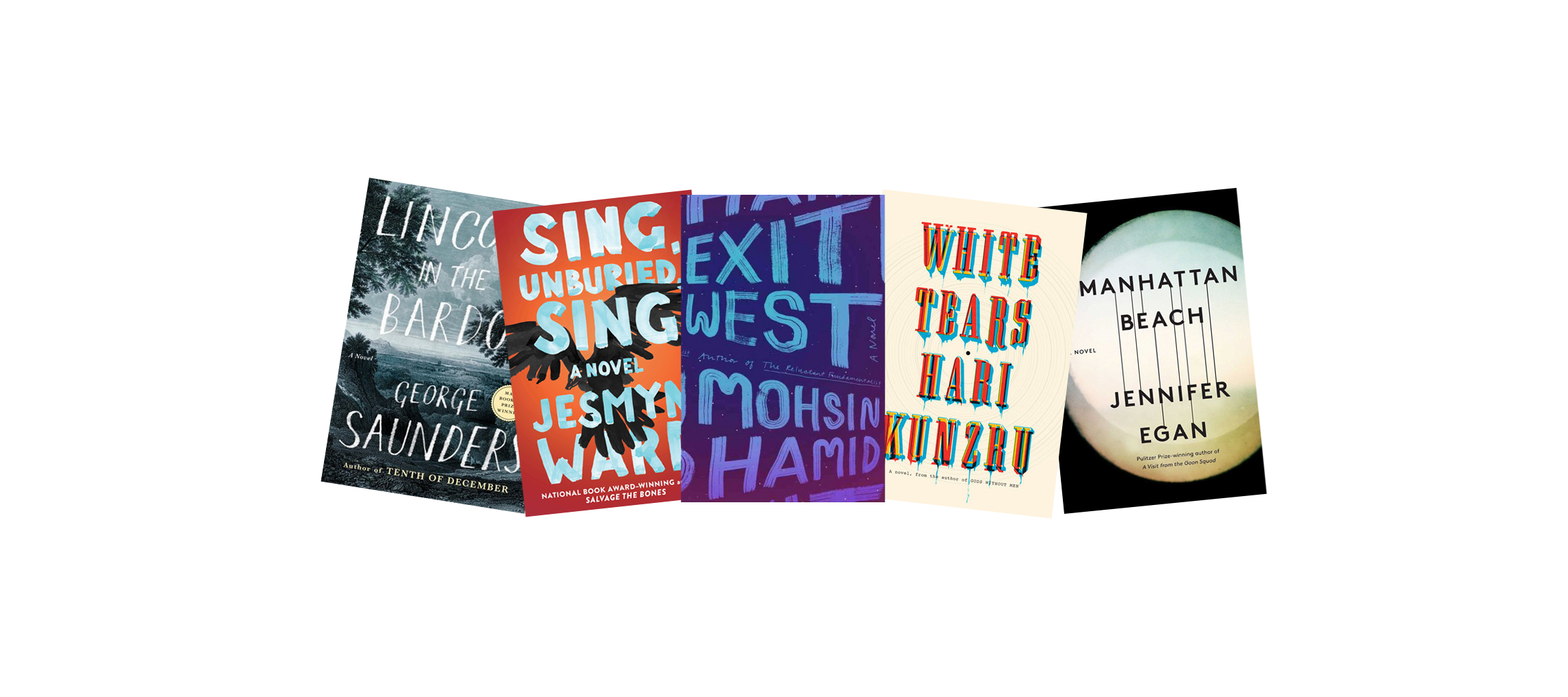
1. Lincoln in the Bardo by George Saunders (Random House, $28)
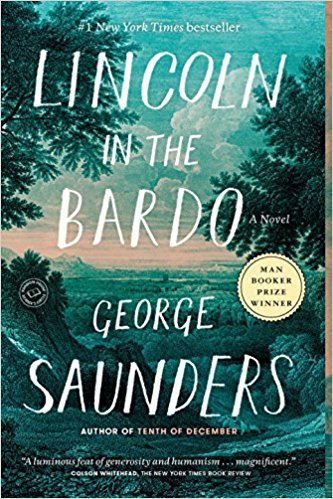
George Saunders has delivered a first novel so profound, "it seems like an act of grace," said Alex Preston at the Financial Times. A "strange and brilliant" mix of American history, Buddhist-inspired spirituality, and allegorical surrealism, it grows out of a tale from history: that Abraham Lincoln was so stricken by the death of his 11-year-old son that he visited the boy's corpse in a Washington cemetery for one last embrace. Saunders' tale is primarily set in the afterlife, in a limbo inhabited by ghosts who are cracking jokes and reminiscing about life when they're joined by Lincoln's forlorn child. Given the odd rules of this realm, "it may take a few pages to get your footing," said Colson Whitehead at The New York Times. But the payoff is tremendous: an oblique but potent portrait of a president coming to terms with the unique burdens he bears while offering a model for all of us who have anxieties to put aside if we're to help America find its proper course. Saunders has been rightly acclaimed for his wry short stories; here, he's attained "an even higher level."
A dissent: The novel's "salty-sweet mix of cruelty and sappiness" won't please all tastes, said Caleb Crain at The Atlantic.
The Week
Escape your echo chamber. Get the facts behind the news, plus analysis from multiple perspectives.

Sign up for The Week's Free Newsletters
From our morning news briefing to a weekly Good News Newsletter, get the best of The Week delivered directly to your inbox.
From our morning news briefing to a weekly Good News Newsletter, get the best of The Week delivered directly to your inbox.
2. Sing, Unburied, Sing by Jesmyn Ward (Scribner, $26)

"As long as America has novelists such as Jesmyn Ward, it will not lose its soul," said Pamela Miller at the Minneapolis Star Tribune. In Ward's second National Book Award–winning novel, a young black woman brings along her two children when she makes a road trip through Mississippi to pick up her white husband from prison. The journey doesn't go smoothly, but joining the ride "illuminates the love-hate tug between the races in a way that we seem incapable of doing anywhere else but in the most blessed works of art." Sing, Unburied, Sing is Ward's "riskiest work yet," said Sarah Begley at Time. Though it begins in the same fictional Gulf Coast town featured in Salvage the Bones, this novel takes a supernatural turn when two tormented spirits join the travelers, communicating with 13-year-old Jojo to shed light on how the family's troubles are rooted in the legacy of Jim Crow. The risk pays off: It "deepens the ghostly sense of the past reaching out to touch — or even strangle — the present."
A dissent: So many stories get rolling, said Ismail Muhammad at Slate, that "the novel can't satisfactorily resolve them all."
3. Exit West by Mohsin Hamid (Riverhead, $26)
A free daily email with the biggest news stories of the day – and the best features from TheWeek.com
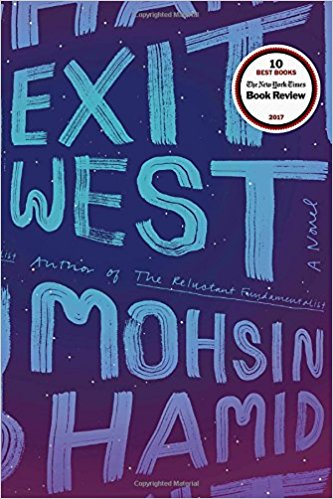
Mohsin Hamid's poignant love story achieves "an astonishing synthesis of political commentary and vivid imagery," said Elena Bruess at AV Club. Its protagonists, Saeed and Nadia, meet in a city tumbling into the chaos of civil war, and when the rising violence compels them to flee, they escape through a magic door that transports them instantly to a Greek island crowded with other refugees. They soon pass through other magic doors, first to London and then to California's Marin County, and their once passionate relationship "hardens and cracks" the farther they move from home. "This is the best writing of Hamid's career," said Michael Schaub at NPR. The Pakistani-born author of The Reluctant Fundamentalist "captures the feeling of being displaced beautifully," with long, poetic sentences that manage never to waste a word. And he offers no false uplift in a story that, for most of Saeed and Nadia's real-world counterparts, remains without an ending. "It's a breathtaking novel by one of the world's most fascinating young writers, and it arrives at an urgent time."
A dissent: In later chapters, the narrative sometimes becomes "more perfunctory than artfully spare," said Michael Upchurch at the Chicago Tribune.
4. White Tears by Hari Kunzru (Knopf, $27)
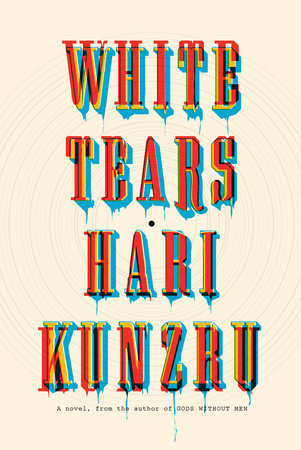
Hari Kunzru's "transfixing" novel has more than a few tricks up its sleeve, said Gene Seymour at Bookforum. It begins as a satire about two young white guys, Seth and Carter, who bond in college over a love of early-20th-century African-American music before opening a recording studio in Brooklyn. But once the voice of a blues singer mysteriously winds up on a street recording made by Seth, "some really strange things happen," said Anthony Domestico at The Boston Globe. The friends decide to fraudulently market the recording as a lost classic, but soon after the song gains attention, Carter is beaten into a coma under mysterious circumstances, prompting Seth to embark on a journey to the Deep South to make sense of it all. Once Seth reaches Mississippi, "time and identity begin to bleed and blur," and the voices of the black artists exploited by whites finally have their say. The last 100 pages are simultaneously "hallucinatory and revelatory," delivering a superb balancing of "the nightmarish and the clear-eyed."
A dissent: The punishment that the novel visits on its protagonists, said Marion Winik at Newsday, "seems to outweigh their crime."
5. Manhattan Beach by Jennifer Egan (Scribner, $28)
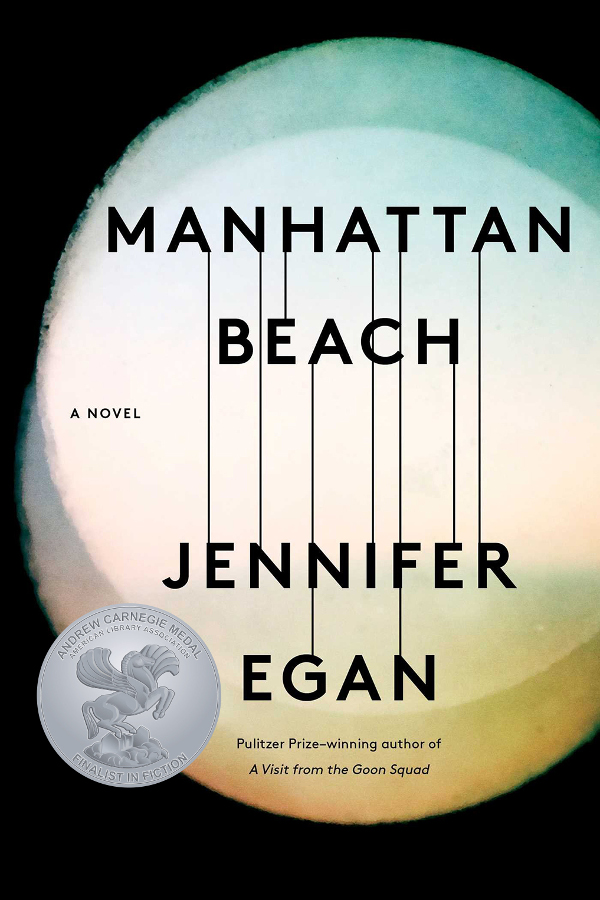
Whatever storytelling mode she chooses, Jennifer Egan "works a formidable kind of magic," said Dwight Garner at The New York Times. The Pulitzer Prize–winning author of A Visit From the Goon Squad has now written "an old-fashioned page-turner," a big, "immensely satisfying" World War II–era story that revolves around a young woman from Brooklyn who works as a welder in a wartime shipyard before becoming the Navy's first female diver. Egan crosscuts frequently to follow the connected stories of a father's disappearance and a mobster's rise, yet "the pieces fit together neatly," said Rayyan Al-Shawaf at The Philadelphia Inquirer. What's more, Egan explores "with keen insight and tremendous sensitivity" a host of larger issues — including war, racism, and the wonder and terror of the sea.
A dissent: "The novel so elegantly represents the past that it doesn't have any sense of friction," said Michelle Dean at The New Republic.
-
 Political cartoons for January 8
Political cartoons for January 8Cartoons Thursday’s political cartoons include a well-done steak, a silenced protester, and more
-
 US nabs ‘shadow’ tanker claimed by Russia
US nabs ‘shadow’ tanker claimed by RussiaSpeed Read The ship was one of two vessels seized by the US military
-
 Avatar: Fire and Ash – third instalment feels like ‘a relic of an earlier era’
Avatar: Fire and Ash – third instalment feels like ‘a relic of an earlier era’Talking Point Latest sequel in James Cameron’s passion project is even ‘more humourless’ than the last